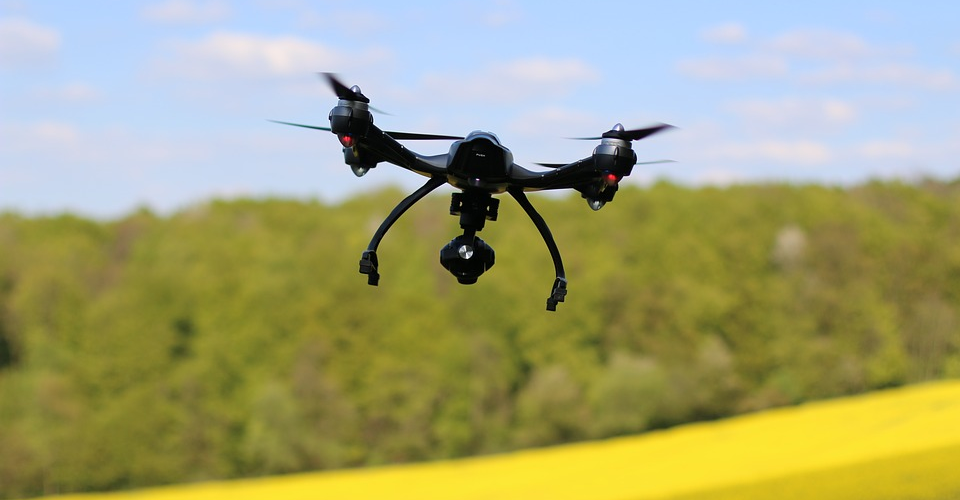Drone Laws for Individual US States
This piece looks at the regulations for pilots flying drones in US states. What laws apply to where and who depend on the state, type of pilot, aircraft, and intended use. Sections covered include:
- Commercial pilots, e.g., for work, profit, and business purpose
- Hobby pilots, e.g., pleasure and fun purpose
- Government employee, e.g., emergency and public services
- Alabama local drone laws
- Alabama state drone laws
- Alabama federal drone laws
Below are summations of the laws as they may pertain to individual US states.
Commercial Pilots Operating in a US State
Specific laws apply to commercial drone pilots who operate in US states. All users must abide by the Federal Aviation Administration (FAA) Small UAS Rule (Part 107). It’s vital that commercial pilots are aware of—and fully understand—the Part 107 rules. Pilots must also pass an aeronautical knowledge test to qualify as an FAA-certified commercial drone pilot.
Commercial drone users must also register their unmanned aircraft with the FAA.
Recreational Drone Pilots Operating in a US State
Hobby drone pilots can fly in all US states for recreational purposes. Users must be aware of the current ‘Special Rule for Model Aircraft’ as outlined by the FAA. It has a convenient, Frequently Asked Questions section on all things related to pleasure flying. Drone hobbyist can also send questions directly to the FAA if they can’t find answers in the FAQs.
Government Drone Pilots Operating in a US State
Operating drones in the official capacity of a government employee require additional knowledge. That may include things like legal considerations, insurance, and specialized training. Government employees who fly drones must be up to date with all local, state, and US federal drone laws.
Government drone operatives can either:
- Fly under the FAA’s Part 107 rule (link above)
- Get a federal Certificate of Authorization (COA).
US state departments now use drones for official operations more than ever before. They’re invaluable tools that can track criminals, save lives, and deliver vital supplies to remote areas.
A government employee may operate drones for reasons such as:
- Policing
- Fire fighting
- Search & Rescue
- Accident investigation
- Forest fire tracking
- Damage assessment
- Others
The legal landscape is forever changing when it comes to operating drones as a public employee. Government employed UAV pilots may need to undergo special training programs in their states.
State-Local Drone Laws
Various authorities in US states can have localized drone laws and regulations. That means bylaws that only apply to specific cities, counties, or regions within the state. Prohibited areas of operation may include city-owned properties, parks, and other recreational areas. Pilots must be aware of all provincial drone restrictions as designated by the local chief of police.
(Ord. No. 2016-28, § 3, 11-22-2016)
State-Specific Drone Laws
Drone laws may apply to a specific state as introduced by its legislature. Currently, there are few laws at the state level that legislate over drone operations. Thus, drone pilots must adhere to local and federal laws when flying their unmanned aircraft. Also, official bodies—including the FAA—continue to suggest, review, and implement changes for all drone flyers.
Again, it’s the sole responsibility of every drone pilot to keep up to date with any changes in the laws. That includes the local level, as well as updates or amendments to any state and federal rules.
Federal Drone Laws and States
These are the laws created by the US federal government. They apply to all pilots in the US for every state. Federal laws include the registration of drones that weigh more than 250g (0.55 lbs.) and less than 55 lbs. Registrants must also be at least 13 years of age at the time of writing.
Other federal drone laws include the following rules of the sky:
- Drones must fly at or below 400ft
- ALWAYS fly drones within the line of sight (LOS)
- NEVER fly close to other aircraft, especially airports
- NEVER fly over the heads of groups
- NEVER fly over sports events, stadiums, or other large public gatherings
- NEVER fly close to emergency response incidents, e.g., fires, and rescue operations
- Never operate a drone under the influence
- Stay informed of all airspace requirements at all times
See Recreational Drone Flying in the United States for updates on federal drone rules. Or, see Certificated Remote Pilots (includes commercial operators) on standards for professional pilots.
Please check back periodically for updates on drone laws and resources for the US states.
——————————————————————————————————————
Disclaimer: The content herein is for information only. It is accurate and reliable to the best of our knowledge at the time of writing. Nothing on this page should replace legal counsel. All information here has been produced in good faith, based on extensive research using authority resources.

